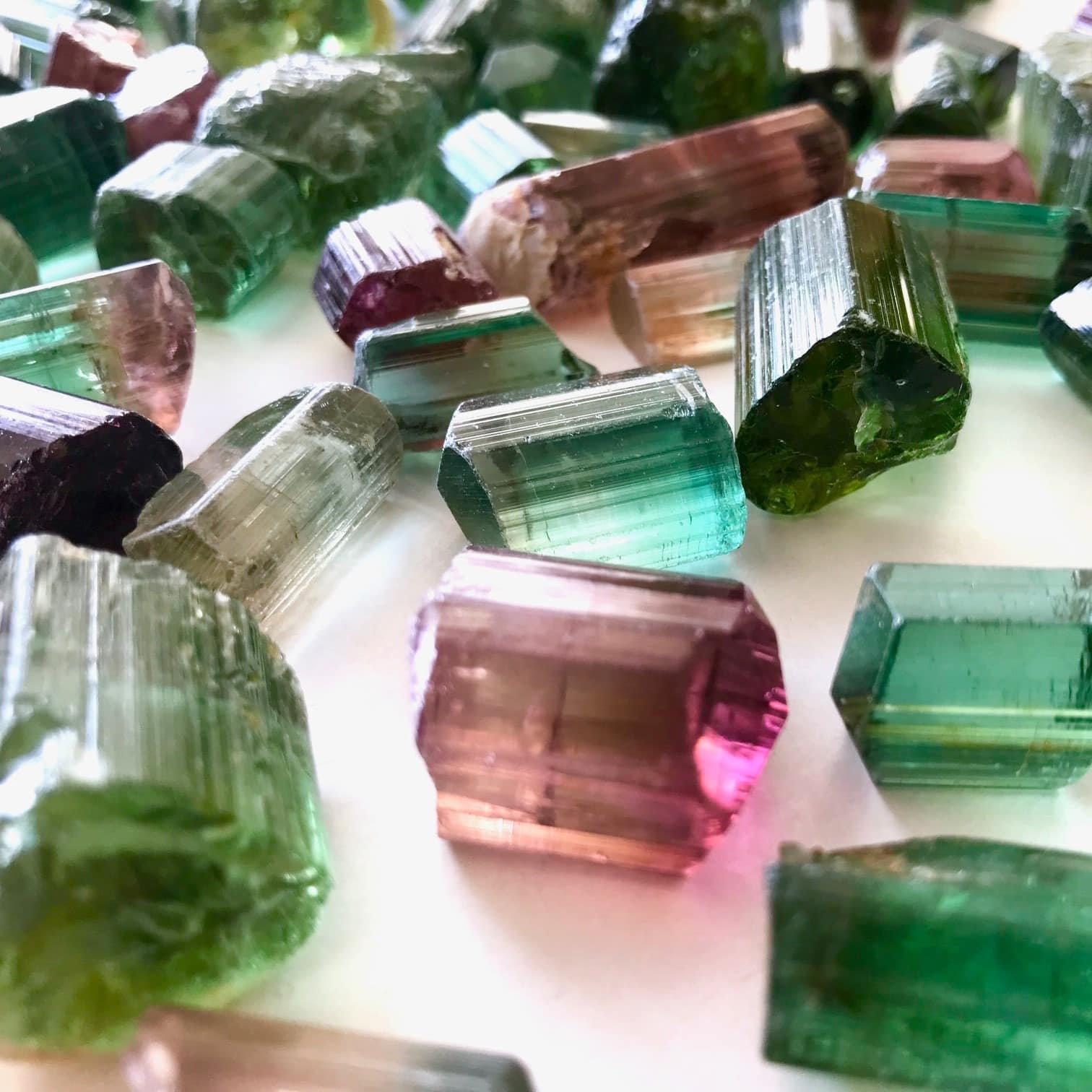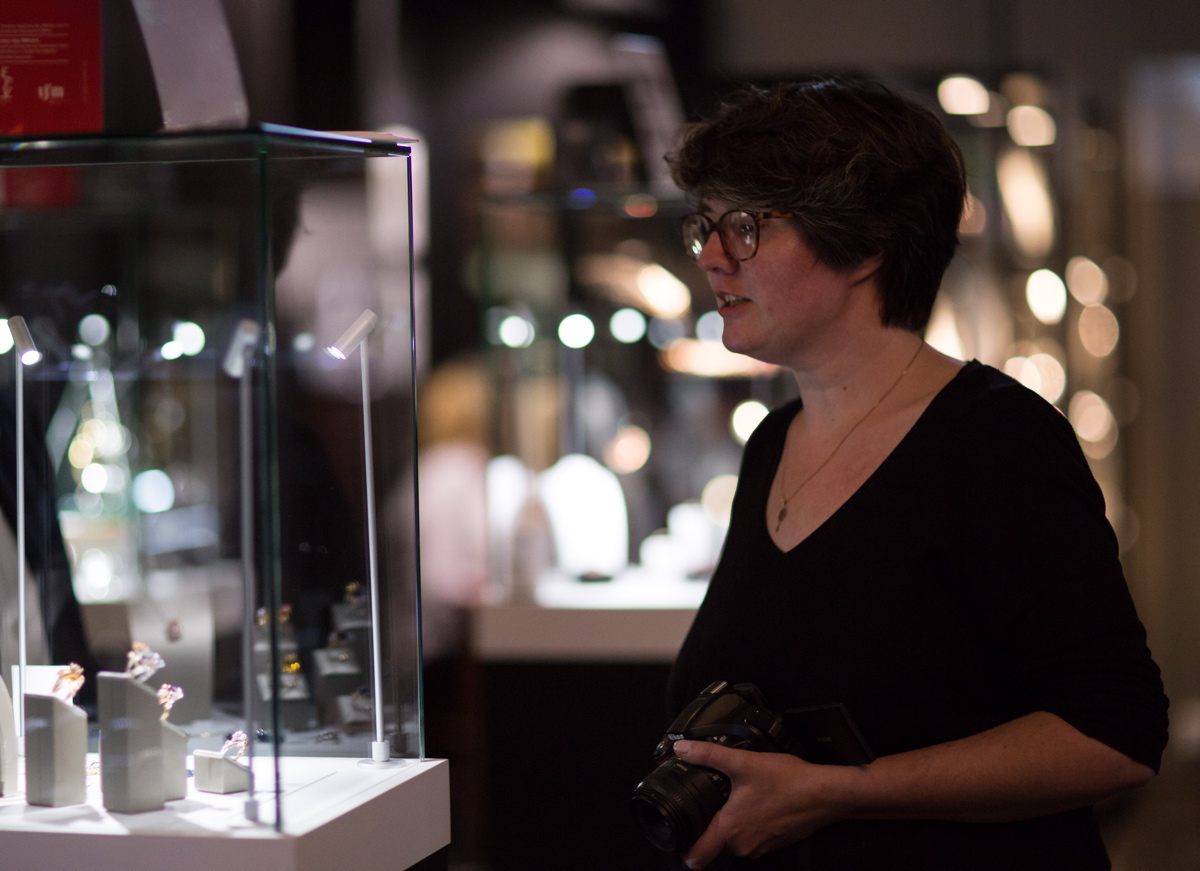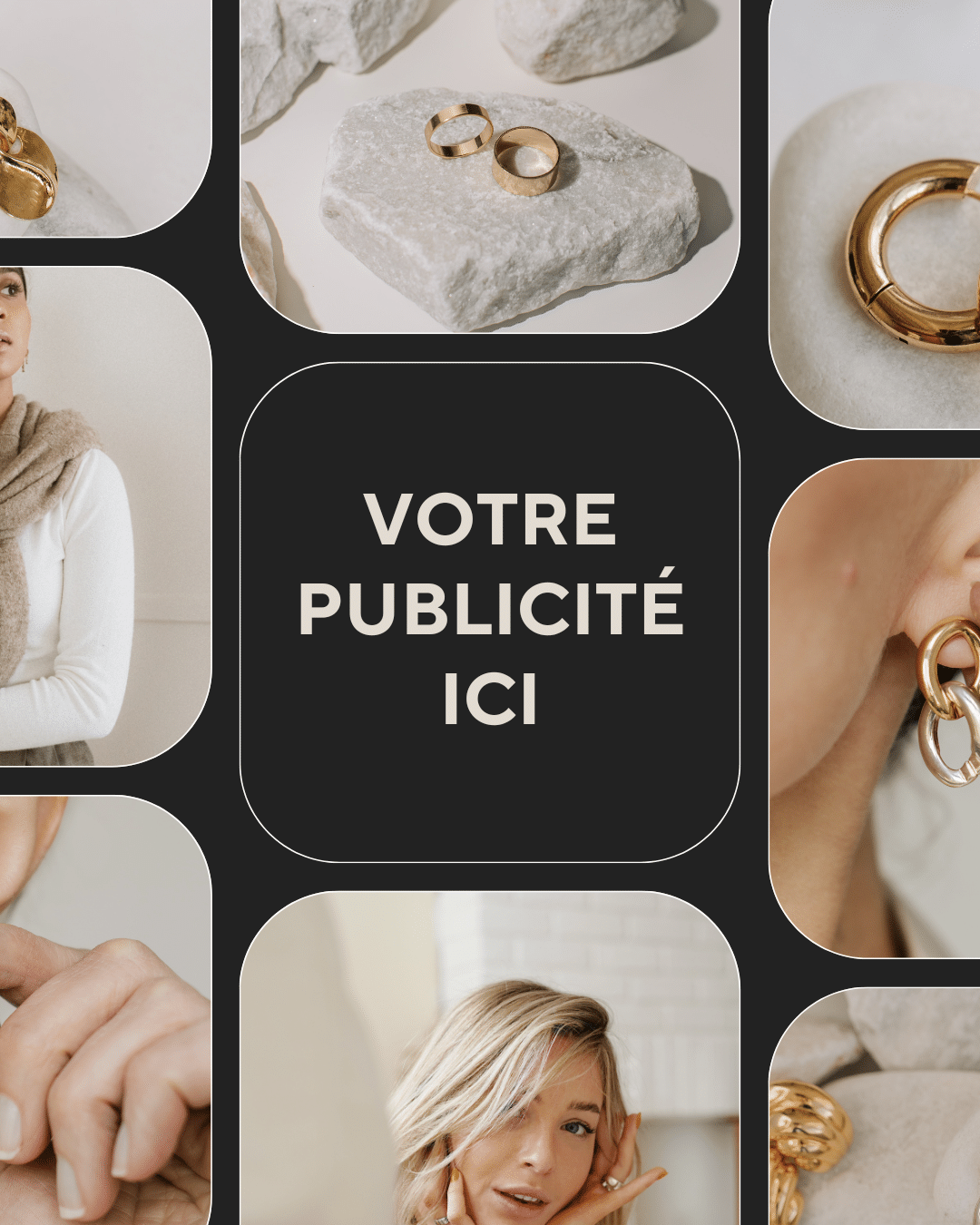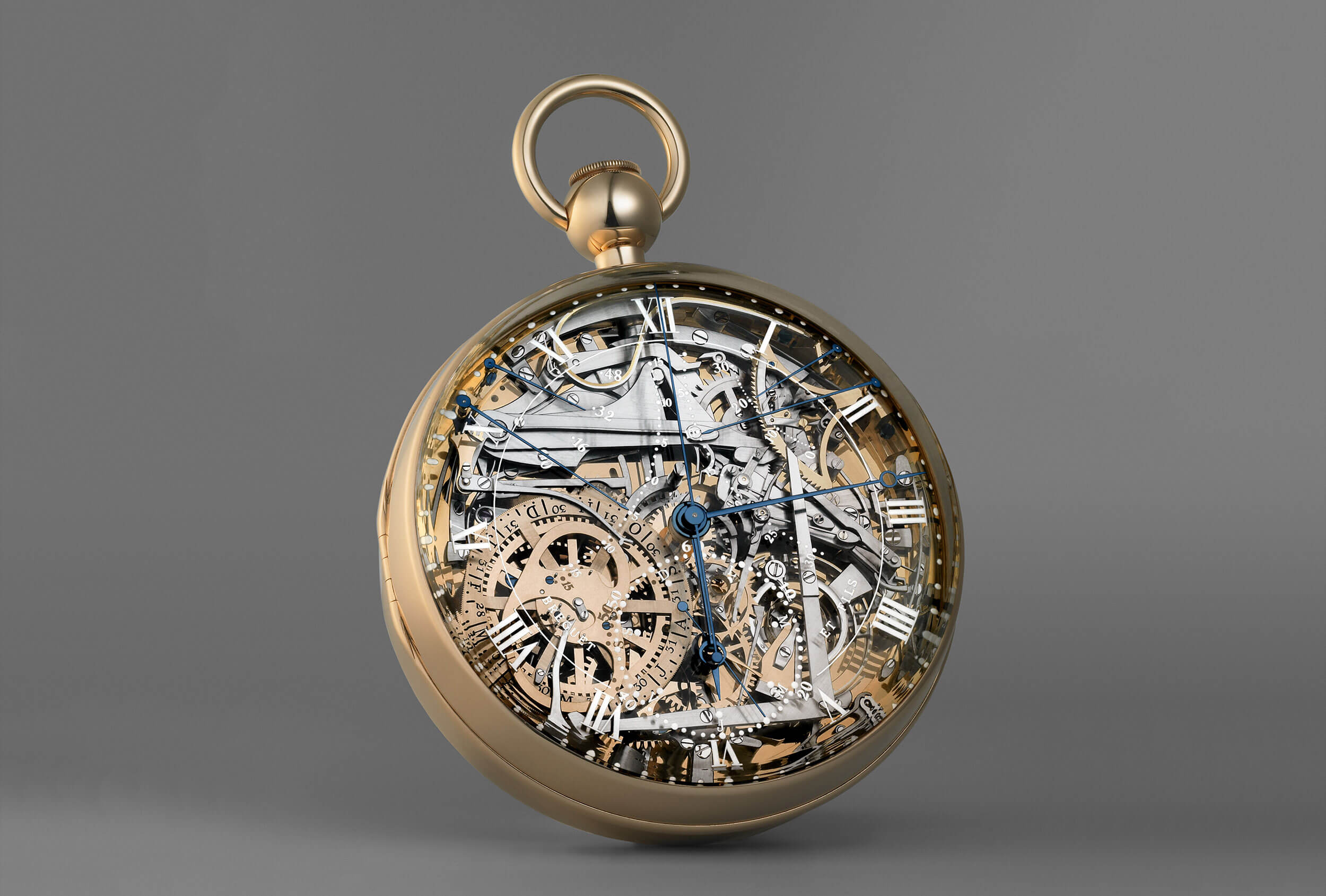A few months ago, Patrick Becker celebrated his twentieth anniversary with Paul Wild. What better occasion than this anniversary to ask him to tell me a little about himself. And to tell me a little about his career and the stones. I must have bumped into Patrick dozens of times at trade fairs before I dared ask him to take a stone out of a shop window. Now he’s the one who tells me, ” Come and see us, we’ve got some nice stuff to show you! So, if you haven’t had a chance to get to know him, this will give you a chance to find out more about him and, who knows… dare to ask him to show you one of the wonders of Paul Wild at the next GemGenève.
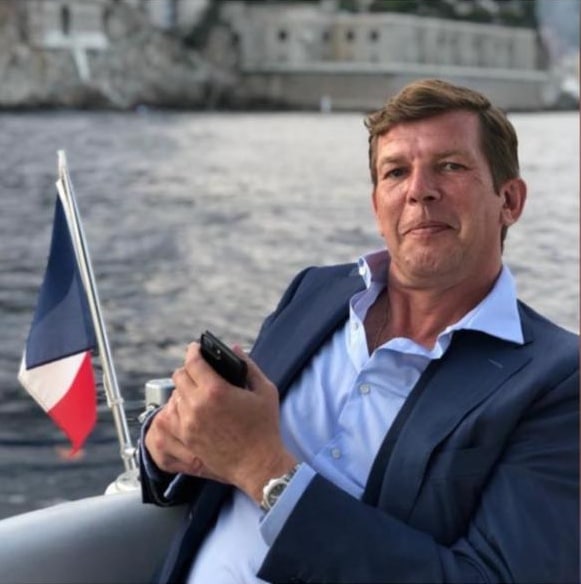
1- Who are you Patrick?
My name is Patrick Becker, I’m 57 years old and I’m Sales Director of Paul Wild. I was born in Geneva and, my goodness, I’m lucky to have seen a lot in this wonderful profession.
2- Tell us a little about your family?
I come from a family where the last four generations were lapidaries from the Idar-Oberstein region. My father was from Berlin and my mother from Geneva. I was born in Switzerland but travelled very quickly. My grandfather was a diamond cutter, but my father was a lapidary. He was born in Germany in 1940, but the family had to leave the country because of the war. My grandfather was a cutter for Naftule & Fils. Raymond Naftule was my godfather. My father then joined the company, did his apprenticeship and by the age of 21 was head of the workshop.
My father soon travelled extensively on behalf of the Naftule family. He went to Africa, saw Tanzania, the sapphires of Umba, the emeralds of Sandawana, the John Saul Mine… He had the opportunity to leave for Israel with my mother because they had a project to create a cutting factory, but the Six-Day War forced them to leave – the machines were destroyed – and return to Geneva.
In the 1960s, he moved to Shannon in Ireland and founded Shannon Lapidary. At the time, there was an industrial zone there with a sort of free port that enabled us to avoid taxes. We stayed there for three years, so I lived in Ireland between the ages of two and five. When we returned to Geneva, my father decided to set up his own business. He worked for the big houses, employing up to six people. He had discovered the country with the Naftule family and loved living there. I was in boarding school at the time, studying between Switzerland and Germany.
3- What did you see yourself doing as a child, surrounded by stone?
Not my father’s job at all. I saw myself more as a member of the Red Cross, the Foreign Legion, maybe even a journalist. I wanted to travel!
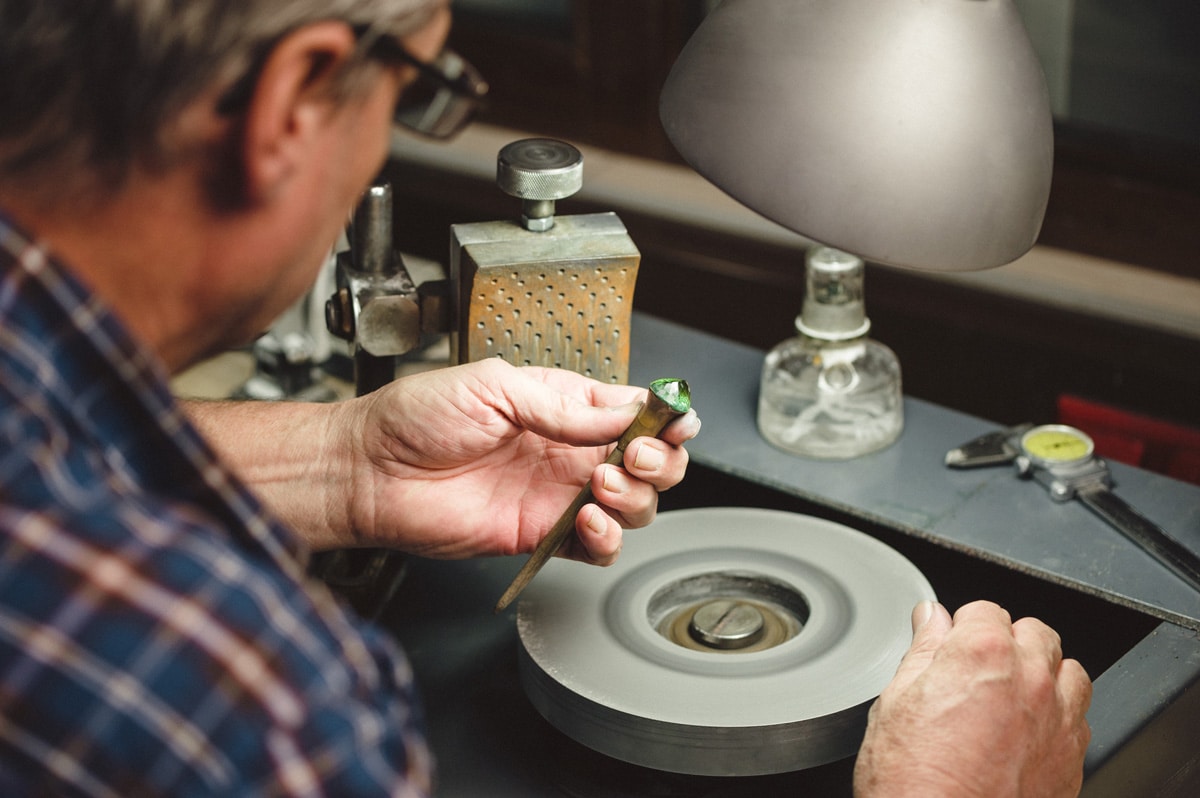
4- And finally?
I finished my secondary education in Germany, passed my A-levels in Ireland and started work in my father’s workshop in September 1985. My father’s company had its offices in Geneva, the workshop was in Ireland and soon there would be an office in Idar-Oberstein. He always used to say: “There’s nothing to see in a D Flawless, I prefer colour “; so I took the same route and I have to say he was quite right about that.
I learnt, I travelled a bit to see the family and understand the trade. I stayed with my parents for five years, but our relationship was complicated and I decided to leave. Then my parents split up, my father closed Ireland and moved to Africa. My mother returned to Geneva and I joined Naftule for a short time.
I was offered a job in Düsseldorf with Gehard Hahn and settled there to carve for about ten years. I stayed there until I was thirty-five. Then, still feeling restless, the Wild asked me to join them. It has to be said that I’ve known them since childhood, my father already had pruning contracts with them. I took the plunge and moved to Idar-Oberstein. The town became my base camp, and even though I travel a lot, it’s where I live.
5- 20 years at Paul Wild!
Yes, it’s been a long time, but I’ve never wanted to change. Today I’m Sales Director, but I didn’t start out that way. I came in as a lapidary but – and this is the advantage of small family-run businesses – I do a lot of things: there are trade fairs, customers, thousands of things to manage on a daily basis. And above all, I travel a lot very quickly. I speak German, French and English, so at the time it was a real plus when I returned home.
Soon there were offices in Paris, Hong Kong, New York… You had to keep track of everything and in the early years I travelled up to 43 weeks a year. Basically, I was in Idar at the weekends. After a while, I stopped cutting to concentrate on other subjects within the company. I learn about sourcing, I buy, I follow projects for clients, I develop the clientele through trade shows… My training is a strength when it comes to talking about materials, communicating with houses, advising on materials and following up projects.
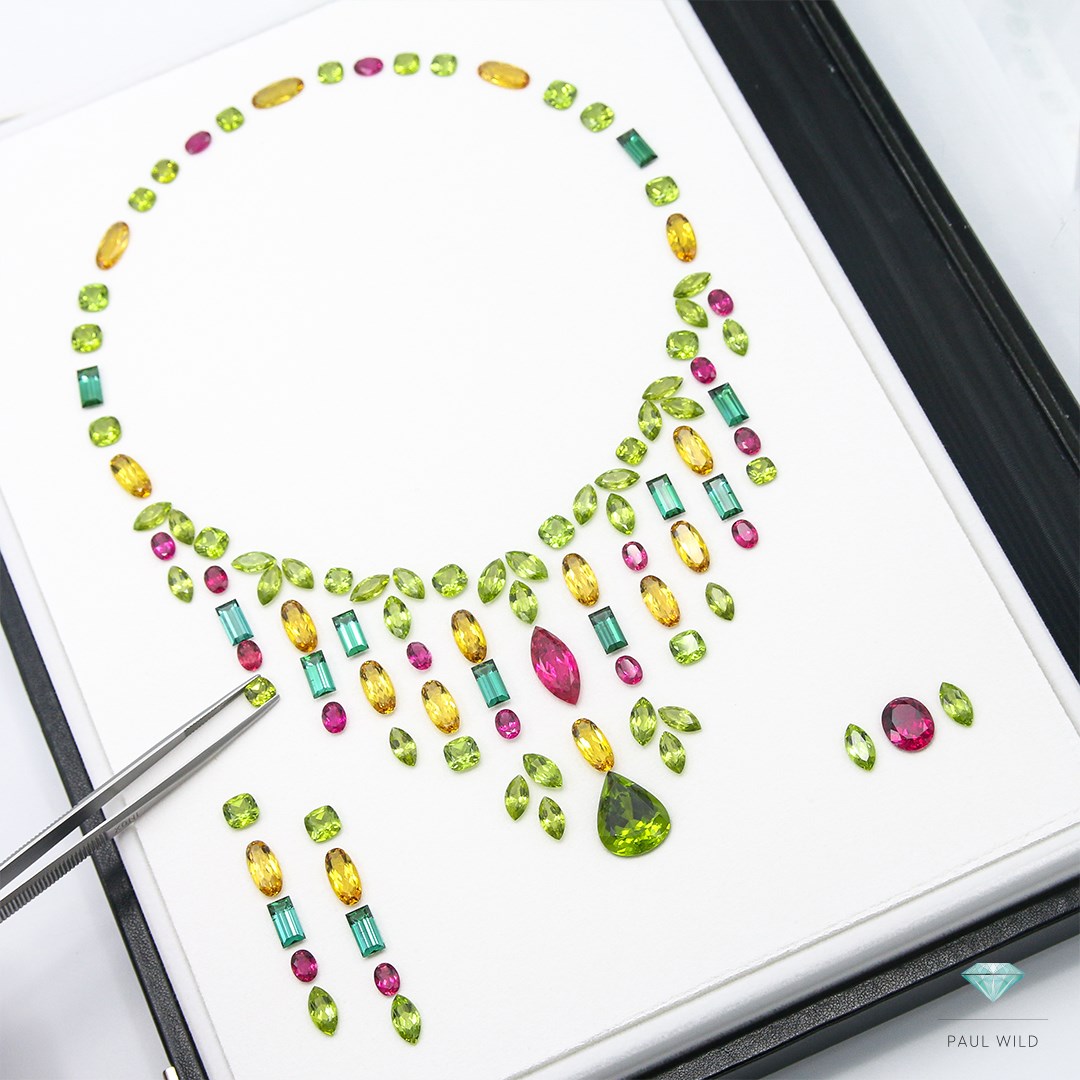
6- What’s the life of a Sales Director like?
In practical terms, I’m in charge of sales, I coordinate trade shows, I’m on hand to receive customers and I deal more specifically with the major houses and key accounts. I’m also involved in purchasing and supplies. But I rely on a loyal and dynamic team to support me on a day-to-day basis.
In Germany, we have a team of 35 people, and in Asia, in Bangkok, we have an average of 60/70 people working in our cutting factory. We have two cutting sites: Idar-Oberstein and Bangkok. The majority of our stones are cut on our premises, the center stones in Germany and the rest in Asia. But all the stones are rough-cut in Idar, even those that will be finished in Thailand.
We buy raw material on a continuous basis. We own one mine (in Paraiba, Brazil), but there is virtually no production there any more. We also have several concessions around the world: in Namibia (demantoid garnet, green tourmaline) and Nigeria (rubellite, mandarin garnet). Sourcing materials is complicated, especially for materials in high demand such as spinel or mandarin garnet. Good quality is very rare. We buy old stocks, and we get a lot of dealers who come to see us at fairs and at Idar.
7- How do you position yourself on issues related to the traceability of materials?
It’s a complicated subject that’s at the heart of our concerns. The industry is evolving and changing, and we’re changing with it. We pay close attention to the provenance of our stones, because while laboratories can determine some of them, this is not the case for all stones. Diamonds, for example, are no exception.
Our customers want this information. The younger generation is asking questions that I didn’t ask myself when I was their age, and that’s great. This consolidates our practices and the relationships of trust that we establish with our customers. We’re unique in that we’re not just suppliers of stones, we’re suppliers of materials. We have mining contracts with producing countries, so we have very precise commitments on mining rules, working conditions and site restoration, unlike those who only have prospecting contracts.
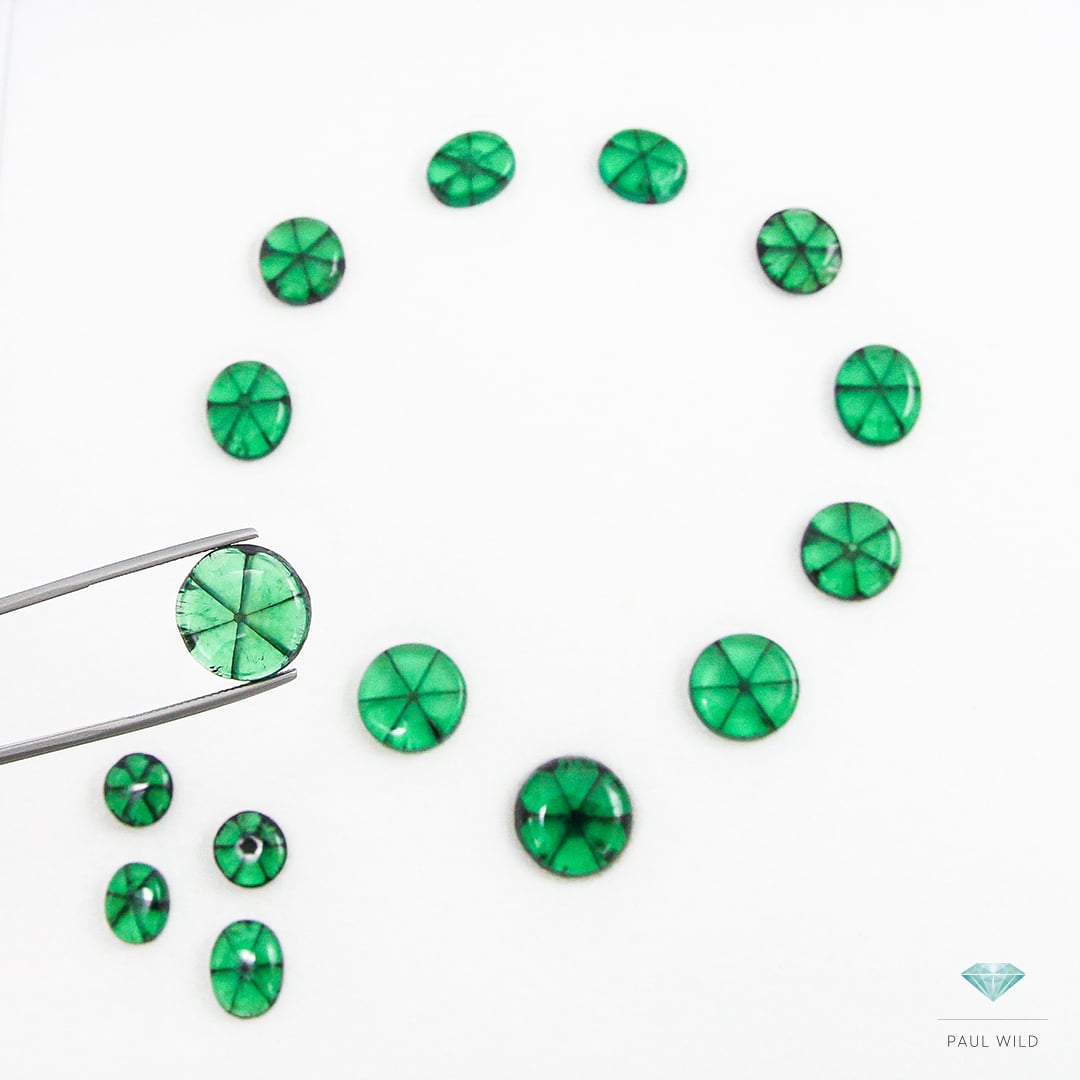
8- What’s your favourite material?
I love stones because that’s all I’ve ever known. Personally, as with Paul Wild, we love colour. But perhaps I could say garnets and spinels. Although sapphires, with all the possible shades that exist, are also particularly appealing to me. You asked me if a particular material had made an impression on me, and I can answer Paraiba. When it first came on the market, no one believed us; people asked us if it was irradiated..
9- What is your relationship with digital technology and the changes brought about by COVID?
It’s necessary, but I like to see people. I like stones, touching them, looking at them, playing with them in the light. Contact is essential and I can’t do without it.
10- Finally, any advice for a young person who wants to do the same job?
I hope they find a good mentor, that’s the most important thing. That’s the most important thing.
I’ve been lucky enough to have great bosses and clients who have taught me, like Mr Winston, Mr Reza and Mr Fred, so I hope they get the chance to rub shoulders with people who want to pass on their knowledge. They treated me with great respect and I owe them a lot for the trust I gained.
After that, there’s the work, the know-how, the patience… But above all, I hope they find the person who wants to pass on their knowledge! I don’t want to stop, and I hope that they never want to stop either.
See you soon!
